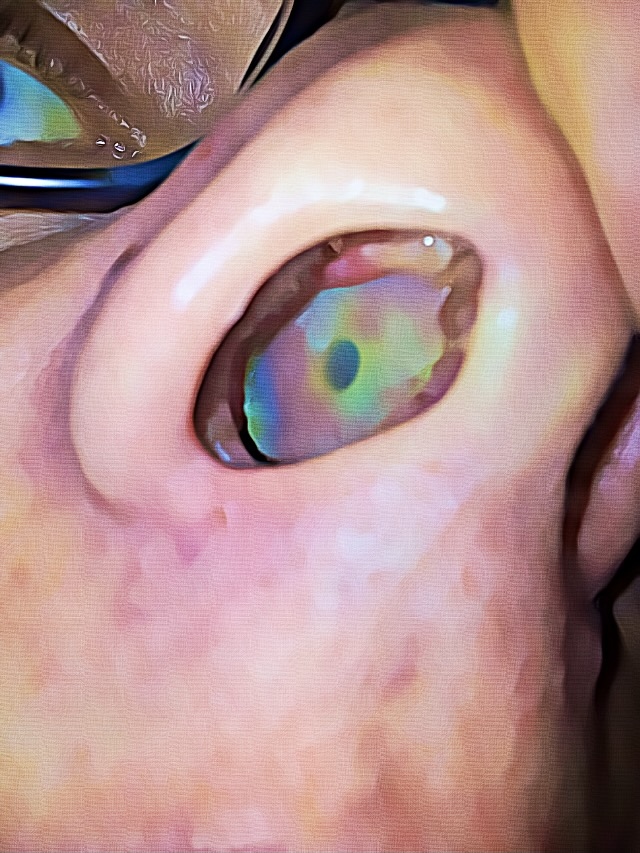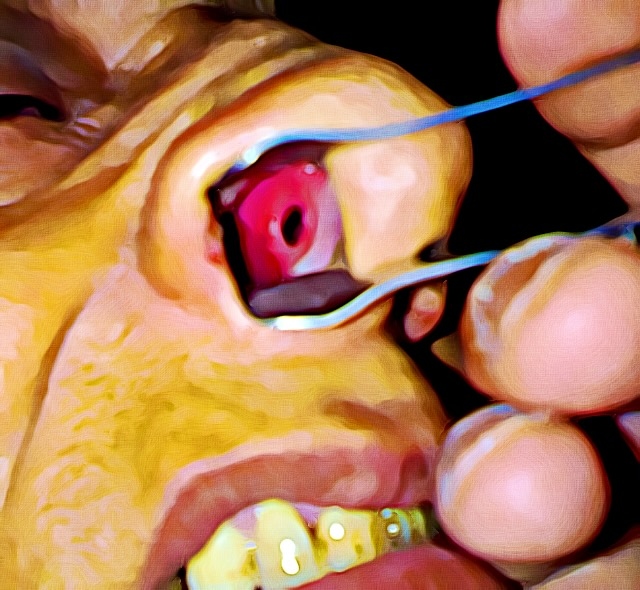Cocaine, also known as coke, snow, crack, and blow, is a highly addictive, fast-acting stimulant drug. It causes dopamine to build up in your brain, which produces feelings of pleasure and increases energy and alertness. Because of this, you may feel alive more than ever, talkative, and euphoric.
It is also easy to develop an addiction to it, even after trying it only several times because your physical body can crave it, or it can lead you to strongly desire its effects. This drug is usually in the form of a white powder, which is snorted by users. Because of this, its common side effect is cocaine nose. Use this article as your guide to find out more about it.
What Is Cocaine Nose?
Cocaine nose, or coke nose, takes place when your blood supply is cut off to the nasal membranes due to prolonged use and excessive snorting of cocaine. It can occur gradually over many years, but it can immediately appear even after one prolonged period of excessive use.

This condition is caused by intranasal administration, a non-invasive and virtually painless way to take drugs because the mucosa inside your nose lets quick absorption of drugs, regardless of whether it is in liquid, powdered, or aerosol form; making it an excellent drug delivery system. While it is a preferred method by many, it can lead to significant, permanent damage to the nose.
Snorting cocaine works by letting it bypass your liver and stomach. It prevents possible drug degradation during the digestive process. In other words, it can easily be absorbed into your bloodstream.
Why Do Users Snort Cocaine?
Swallowing drugs means breaking them down in the stomach before they get absorbed by the stomach lining or intestines to become transported to the bloodstream and onto the brain. In short, this process takes time and can decrease its effectiveness. On the other hand, when they are snorted, users can experience their full pleasurable effects within minutes.
Snorting coke involves crushing the drug into a fine powder. As users snort cocaine, the drug needs to travel from the blood vessels in the nose to the heart, which then transports the substance into the lungs to be converted into oxygen. The blood with the corrupted oxygen then returns to the heart, which is pumped to other organs.
When the drug reaches your brain, cocaine binds to the dopamine transporter and prevents it from removing dopamine, the pleasure-inducing chemical, from your brain’s synapse and its receptors. This blocking continues until dopamine accumulates and produces short-term positive effects from having excess dopamine in the brain.
What Are the Signs of Nose Damage From Drug Addiction?
Regardless of whether a person uses cocaine long-term or short-term, they can suffer from nose damage. Here are some of its signs from drug addiction:
- Disfiguration on the nose
- Flattened or collapsed nasal bridge
- Loss of smell
- Pain in the nasal area
- Sinus issues
- Rotting skin on the bottom of the nose
- Runny nose

What Are the Effects of Cocaine?
Cocaine can have stimulating effects on the body as soon ingested. Here are some short-term side effects that can affect your overall well-being:
- Anxiety
- Coke nose and other nasal damage
- Depression
- Dry mouth
- Exhaustion
- Hallucinations
- Hypersensitivity to light, sound, and touch
- Increased blood pressure
- Increased body temperature
- Irritability
- Irritability
- Mood swings
- Muscle twitches
- Nausea and vomiting
- Paranoia
- Reduced appetite
- Restlessness
- Seizures
- Substance addiction
- Tension
- Tremors
- Coma
- Death
On the other hand, long-term usage of cocaine can lead to worse nose damage. For instance, pain due to nose damage can last for years, even after discontinued use. You may also require plastic surgery for repair if your nose gets severely disfigured. In addition, your deviated septum can cause long-term breathing problems that may also need medical attention. Here are other long-term effects of cocaine that you should watch out for:
- Abnormal heartbeat
- Aggressive or altered behavior
- Acute head pain
- Cardiac arrest/heart attack
- Chest pain
- Difficulty sleeping
- High blood pressure
- Impaired judgment
- Psychosis and/or hallucinations
- Sensitivity to light
- Sensitivity to sound
- Sexual dysfunction
- Stroke
What Happens During a Cocaine Overdose?
Cocaine can produce feelings of pleasure and euphoria, increase concentration, and result in hypersensitivity reactions. There are negative short-term effects and long-term consequences, but the most immediate danger related to this drug is an overdose. The National Institute on Drug Abuse (NIDA) mentions that cocaine overdose is caused by users taking excessive amounts of the drug until it reaches toxic levels in their system and causes a serious reaction on the body. However, it’s important to note that these toxic levels are not completely dictated by dosage.
The University of Arizona states that even a few hundred milligrams can cause an overdose. On the other hand, some users don’t suffer from an overdose even when consuming several grams of cocaine. In other words, overdose toxicity depends from person to person and their susceptibility to the toxins.
What Is Cocaine Withdrawal and What Are Its Effects?
Frequent use of cocaine can cause you to develop a higher tolerance to the drug and its euphoric effects. It may lead you to use greater amounts of it, impacting your physical and mental health in the long run. Eventually, your brain needs it to produce any dopamine. Suddenly stopping using it may result in withdrawal symptoms. Here are some that you can experience:
- Agitation
- Anxiety
- Depression
- Fatigue
- Increased appetite
- Nightmares
- Restless behavior
- Suicidal thoughts
Since the euphoric rush from cocaine disappears quickly, you may experience withdrawal symptoms shortly after your last dose. Because of this, you may take more and more of it to delay these side effects. Unfortunately, doing it can lead to a fatal overdose.
How Long Does a Cocaine Withdrawal Usually Last?
Withdrawal symptoms can be felt within hours of stopping use, and their intensity depends on your frequency of cocaine use and the amount taken. They can also last for months after your last dose.
Stopping your usage altogether can be your first major step toward addiction recovery, but you may experience the worst cravings and side effects during your first month of quitting. Some symptoms may also be uncomfortable and even dangerous, including severe depression and suicidal thoughts.
What Is the Cocaine Withdrawal Timeline?
During the one to three hours, you may feel anxious, exhausted, and irritable. You may tend to eat more because you have an increased appetite. In your first week, you will crave cocaine intensely. You may also suffer from exhaustion, sleeping problems, depressive mood swings, and vivid dreams.
Week two to four is one of the toughest periods during a cocaine withdrawal because your depression and strong cocaine cravings continue. You may also have trouble focusing and even stay agitated and irritable all the time.
When you overcome these challenging phases, your withdrawal symptoms start to diminish as your body and mind begin to heal. While you may still experience anxiety, uneasiness, and cocaine cravings, you can overcome them more easily, and your overall well-being has gotten better.
Conclusion
Cocaine is a dangerous drug that is usually snorted and can cause a very intense high. Since it is easy to stay reliant on it, you may want to take it repeatedly right after your first try until you develop an unhealthy addiction to it. If you or someone you know use it, especially regularly, watch out for cocaine nose and nasal damage.
Remember the information in this guide and follow the tips above to protect yourself from its damaging effects. On the other hand, you can explore various available addiction recovery resources so you can seek the help you need.
Sources:
https://methoide.fcm.arizona.edu/infocenter/index.cfm?stid=217

